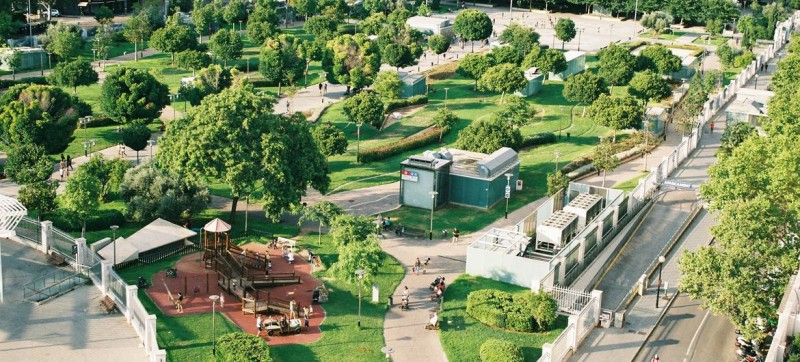Play video
© Unsplash/Nerea Martí Sesarin Public green space has a positive effect on biodiversity, climate, wellness and air quality.
The Assembly runs through Thursday in Nairobi, Kenya. It is hosted by the government of Kenya in collaboration with UN-Habitat, the UN Human Settlements Programme.
Tweet URL
More than 80 Ministers and Vice Ministers are due to attend, together with 5,000 delegates from around the world, said the UN urban affairs agency.
In his message, António Guterres pointed out that cities are on the front line for realising the Sustainable Development Goals (SDGs), the New Urban Agenda, and the Paris Agreement on climate change.
Over 2 billion in cities by 2050
“Cities are critical battlegrounds. They generate 70 percent of global emissions. They house half of humanity. And by 2050, over two billion more people will call them home.”
The Secretary-General’s blueprint for action, Our Common Agenda, calls for a reinvigorated and more inclusive multilateralism, recognizing the pivotal role cities and other local authorities play, in addressing the challenges ahead.
“Such multilateralism is vital to help cities to play their part”, he said, “to ensure the finance, information and support is in place for them to become resilient, inclusive and sustainable.”
Although cities have always spawned the ideas and innovations that have led human development, they’re more important than ever, “amidst a world in crisis”, he added.
“Inequalities are increasing. Global temperatures are rising, with catastrophic effects. Debt is straining developing countries’ economies to the limit. And halfway to the deadline for the 2030 Agenda for Sustainable Development, we are leaving more than half the world behind.”
Mr. Guterres pointed out that an estimated 670 million still live in extreme poverty, and over one billion people, continue to endure slum conditions, due to lack of services available elsewhere.
Trends can be reversed
“There is still time to reverse these trends”, he said, and multilateralism must support cities to act on climate change, affordable housing, and the SDGs.
“I am confident that this UN Habitat Assembly will advance these aims, including through your ministerial declaration. Together, we can achieve the sustainable urban future we need to build a peaceful, prosperous and healthy world for all”, he concluded.
In his video remarks to the Assembly, President of the General Assembly Csaba Kőrösi, outlined key ways that cities can become more sustainable.
First, he pointed to the importance of compiling comprehensive data and statistics. Secondly, governments must fully assess urban development in the context of climate change, health, food security and water supply.
“But what we urgently need is a mindset shift. From a business-as-usual planning and operation, to one aiming at real sustainability transformation”, he said. “This means strengthening the science-policy interface, advancing evidence-based solutions, and approaching our goals holistically.”
Kenya’s President, William Ruto, officially opened the Assembly, alongside UN-Habitat Executive Director, Maimunah Mohd Sharif.
Prioritise cooperation
She told delegates that Member States needed “to prioritise national and local cooperation as the basis of a just transition. Let us never forget human rights and the UN Charter, as the basis for sustainable urbanisation.”
Ms. Sharif described the challenge facing all humankind as “enormous”.
“The only way we can achieve positive and transformative impact on the ground, is not to go at it alone, but to embrace multilateral action.”
The First Lady of Kenya, Rachel Ruto, is due to host the inaugural First Ladies Roundtable on women and their role in placemaking in cities on Tuesday.
The five-day programme includes a high-level dialogue of the heads of state, thematic debates, and dialogues focusing on universal access to affordable housing, urban climate action, urban crises recovery, localization of the SDGs, and prosperity and local finance.




Comments are closed, but trackbacks and pingbacks are open.